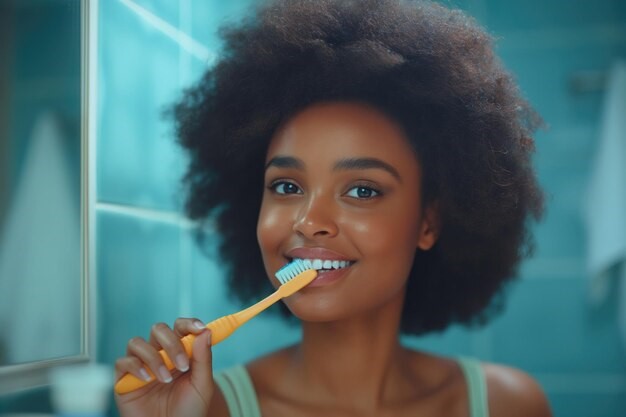Have you ever thought about what you do right after brushing your teeth? If you’re like most people, you probably rinse your mouth with water. But what if we told you that this common habit might not be the best for your dental health?
Let’s see why experts, including Dr. Titilayo Goncalves, a respected Consultant Dental Surgeon in Lagos, suggest you might want to skip the rinse.
Science behind the spit
When you brush your teeth, you’re not just cleaning away food particles and bacteria. You’re also applying a protective layer of fluoride from your toothpaste. Fluoride is a mineral that helps strengthen your tooth enamel, making it more resistant to decay.
Dr. Goncalves explains, “Fluoride is a crucial ingredient in toothpaste. It helps remineralize your teeth, essentially repairing early stages of tooth decay. When you rinse immediately after brushing, you’re washing away this beneficial fluoride before it has a chance to do its job.”
Benefits of not rinsing
By skipping the rinse, you’re giving the fluoride in your toothpaste more time to work its magic. This can lead to several benefits:
- Stronger enamel: The longer fluoride stays on your teeth, the more it can strengthen your enamel.
- Better cavity protection: Fluoride helps prevent cavities by making your teeth more resistant to acid attacks from plaque bacteria and sugars in the mouth.
- Improved remineralization: Fluoride aids in repairing tiny areas of decay before they turn into bigger cavities.
What to do instead
So, if rinsing isn’t recommended, what should you do after brushing? Dr. Goncalves suggests:
- Spit out excess toothpaste
- Don’t rinse with water
- Don’t eat or drink for at least 30 minutes after brushing
This allows the fluoride to remain on your teeth, continuing to protect them long after you’ve finished brushing. But, what about the taste?
Some people might worry about the lingering taste of toothpaste. Dr. Goncalves reassures, “Your saliva will naturally rinse away the excess toothpaste over time. Most people find that any strong taste dissipates within a few minutes.”
Is it ever okay to rinse?
While the no-rinse method is generally recommended, there are situations where rinsing might be necessary. For example, if you use a high-fluoride toothpaste prescribed by your dentist, you should follow their specific instructions, which may include rinsing.
What about mouthwash?
If you like to use mouthwash, Dr. Goncalves advises using it at a different time of day, not right after brushing.
“Mouthwash can be beneficial, but it typically contains less fluoride than toothpaste. Using it right after brushing could wash away the more concentrated fluoride from your toothpaste,” she explains.
Other tips for better brushing
While we’re on the topic of good brushing habits, Dr. Goncalves shares a few more tips:
- Use a soft-bristled toothbrush: Medium or hard bristles can damage your gums and enamel.
- Brush gently: Aggressive brushing doesn’t clean better and can harm your gums.
- Brush for two minutes: This ensures you’re giving all areas of your mouth adequate attention.
- Replace your toothbrush regularly: Aim to get a new one every three to four months.
What if you’ve been rinsing all along?
If you’re just learning about this now, don’t panic! Dr. Goncalves reassures, “If you’ve been rinsing after brushing, you haven’t undone all your good oral hygiene work.
“The fluoride in your toothpaste still provides benefits even with rinsing. Not rinsing is just an extra step to maximize those benefits.”
The bottom line
Changing a lifelong habit can be challenging, but small adjustments in your oral care routine can make a big difference in your dental health. By skipping the rinse after brushing, you’re giving your teeth extra protection against decay.
Remember, this advice is general, and your specific needs may vary. Dr. Goncalves emphasizes, “Always consult with your dentist for personalized advice. They understand your unique oral health profile and can provide tailored recommendations.”
So, the next time you finish brushing, resist the urge to rinse. Your teeth just might thank you for it!


